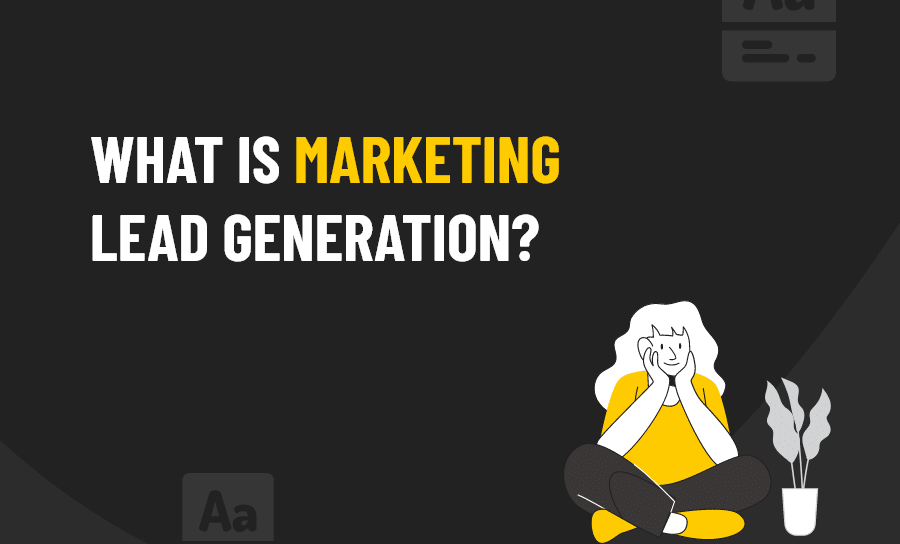What Is Marketing Lead Generation? Fundamentals

Lead generation is the process of converting website visitors into paying customers. Every sale is a lead, but how do you turn visitors into leads?
Similar to the relationship between sales and marketing, lead generation is a two-way street. Sales are made possible by converting visitors into leads, and marketing, of course, is the mechanism that converts leads into sales.
The question of “how is marketing linked up with lead generation” is one that’s asked very often. The answer is not always the easiest to understand, but it doesn’t have to be because once you understand it, you can help your business accomplish what you need to.
Doing marketing is one thing, but promoting that type of marketing is another when it comes to lead generation. If you want to do marketing effectively, lead generation must be an integral part of it. The same is the case with packaging where you must use small business packaging ideas to turn visitors into sales.
Similarities Between Marketing And Lead Generation

The same principles that work in lead generation can also apply to marketing. By creating content with a lead generation purpose, you can pull in the ideal audience who is most likely to convert and double your sales.
The process of marketing products and services is much the same as the process of generating leads for any business.
You develop a product, start spreading the word about it to gain media coverage, complete your campaign by giving educators, influencers, and the press valuable press releases.
Marketing and lead generation are similar in that they’re both all about marketing to your prospects. In this instance, both marketing and lead generation means the same thing.
Marketing means preparing a product or service for sale or your website. A lead is a person who is interested in your offers. So, marketing and lead generation are both about preparing a product or service for sale.
Ultimately, the goal of both marketing and lead generation is to connect with your potential customers.
The key to building a successful business is sending the right message to the right customer. Your business’s marketing strategy will be focused on how to bring in potential customers to test and purchase your products and services.
Differences Between Marketing And Lead Generation

Although there are similarities between lead generation and marketing, sometimes you have to distinguish between them, as both focus on the same things. They are both designed to bring new customers into your business.
The primary difference between lead generation and marketing is that marketing involves using and communicating with contacts and leads referred by others.
Marketers do everything they can to drive leads into the business. Some say that marketing and lead generation are the same thing, but we believe there are some crucial differences.
The difference between marketing and lead generation is that marketing is about talking to people in your potential client base. Lead generation is about finding customers who are most likely to buy what you’re selling.
Marketing uses many different methods to find its customers or leads, including advertising, blogging, surveys, and various social media sites like Twitter, Facebook, LinkedIn, blogs, and much more.
The differences between marketing and lead generation are not hard and fast. In fact, in both cases, it’s important to gain a comprehensive understanding of the market.
Market research is essential in both fields to figure out precisely what your audience wants, but it’s also essential to identify the different marketing approaches that will work for you.
Is lead generation part of marketing?
Lead generation is a vital part of any good marketing strategy. There’s a considerable debate over whether lead generation belongs to a sales or marketing team.
Still, we’d argue (as experts have) that both a marketing and sales team play a vital role in lead generation. In the marketing department, lead generation typically involves creating greater brand awareness through digital advertising, inbound content marketing, and social media to bring knowledge of a brand to as many people as possible.
Once that step is complete, marketers typically engage in targeted market campaigns towards prospects that are more carefully selected, such as if they’ve already expressed interest or fit within the target demographic. From there, the sales team tends to take over, closing deals and making the leads more profitable.
What’s the difference between lead generation and marketing?
Marketing is a catch-all term that involves promoting awareness about a brand through advertising, PR, and digital marketing practices. In contrast, lead generation is focused on targeting potential customers—an excellent example of where the two overlap is in automated cold email campaigns.
These campaigns are targeted explicitly toward specific customers, but they also work to promote the brand and service of a company.
The critical thing to remember is that lead generation should be at the heart of any marketing strategy. This is why there should be clear communication between the marketing and sales departments about your company’s goals, what central message you want to deliver to the customer, and how everyone should interact with a potential customer.
Final thoughts
Marketing isn’t really related to sales, but they do have a lot of overlap. As a sales rep, you spend most of your time building relationships with clients. Blogs may be one of the best places for you to do that.
Marketing is all about educating people about your products and services. But when it comes to lead generation, you need to up-sell your customers in order to get them to sign-up for your premium or free services.





